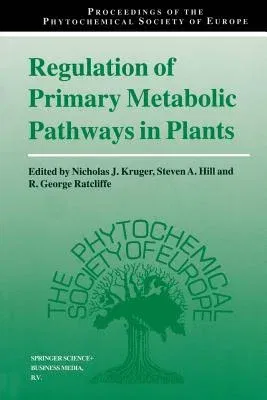Regulation of Primary Metabolic Pathways in Plants (Softcover Reprint of the Original 1st 1999)Paperback - Softcover Reprint of the Original 1st 1999, 28 October 2012

Qty
1
Turbo
Ships in 2 - 3 days
In Stock
Free Delivery
Cash on Delivery
15 Days
Free Returns
Secure Checkout
Part of Series
Proceedings of the Phytochemical Society of Europe
Print Length
313 pages
Language
English
Publisher
Springer
Date Published
28 Oct 2012
ISBN-10
9401060215
ISBN-13
9789401060219
Description
Product Details
Book Edition:
Softcover Reprint of the Original 1st 1999
Book Format:
Paperback
Country of Origin:
NL
Date Published:
28 October 2012
Dimensions:
23.39 x
15.6 x
1.75 cm
ISBN-10:
9401060215
ISBN-13:
9789401060219
Language:
English
Location:
Dordrecht
Pages:
313
Publisher:
Weight:
458.13 gm

